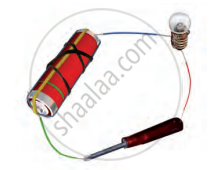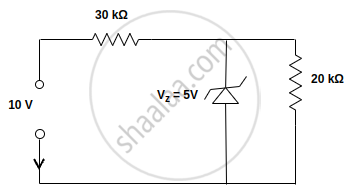Advertisements
Advertisements
Question
Distinguish between conductors and insulators of electricity. Give two examples of each.
Solution
Conductors
- Conductors are those subs¬tances which allow electricity to flow through them.
- e.g. all metals, human body.
Insulators
Insulators are those which do not allow electricity to pass through them. –
e.g. wood, paper, glass.
APPEARS IN
RELATED QUESTIONS
Write true or false for a given statement.
All metals are conductors of electricity.
Write true or false for a given statement.
The switch should not be touched with wet hands.
Fill in the blank
_______ pass electricity through them.
Select the correct alternative
We should not touch the switch with wet hands otherwise
Select conductors and insulators from the following :
Glass, silver, copper, wood, paper, pure water, impure water, aluminium, iron, leather, plastic, steel, human body and ebonite.
Select the correct option:
Which of the following is the best conductor of electricity?
A current of 1.2 A flows through a conductor for 3.0 s. What amount of charge passes through the conductor?
Differentiate between:
Conductors and insulators.
Define insulators
Assertion (A): It is very easy for our body to receive electric shock.
Reason (R): Human body is a good conductor of electricity.
Copper: conductor:: Wood: ______.
Assertion (A): Insulators do not allow the flow of current through themselves.
Reason (R): They have no free charge carriers.
Explain why the bulb would not glow in the arrangement shown in Figure.

The handles of the tools like screwdrivers and pliers used by electricians for repair work usually have plastic or rubber covers on them. Can you explain why?
Ebonite does not allow electric charges to pass through them.
An insulator gives a lot of ______ to the flow of charge (electron).
Wires made of ______ an electrical conductor, have very low resistance.
Consider the following circuit:

The potential drop across the 20 kΩ resistor would be:
